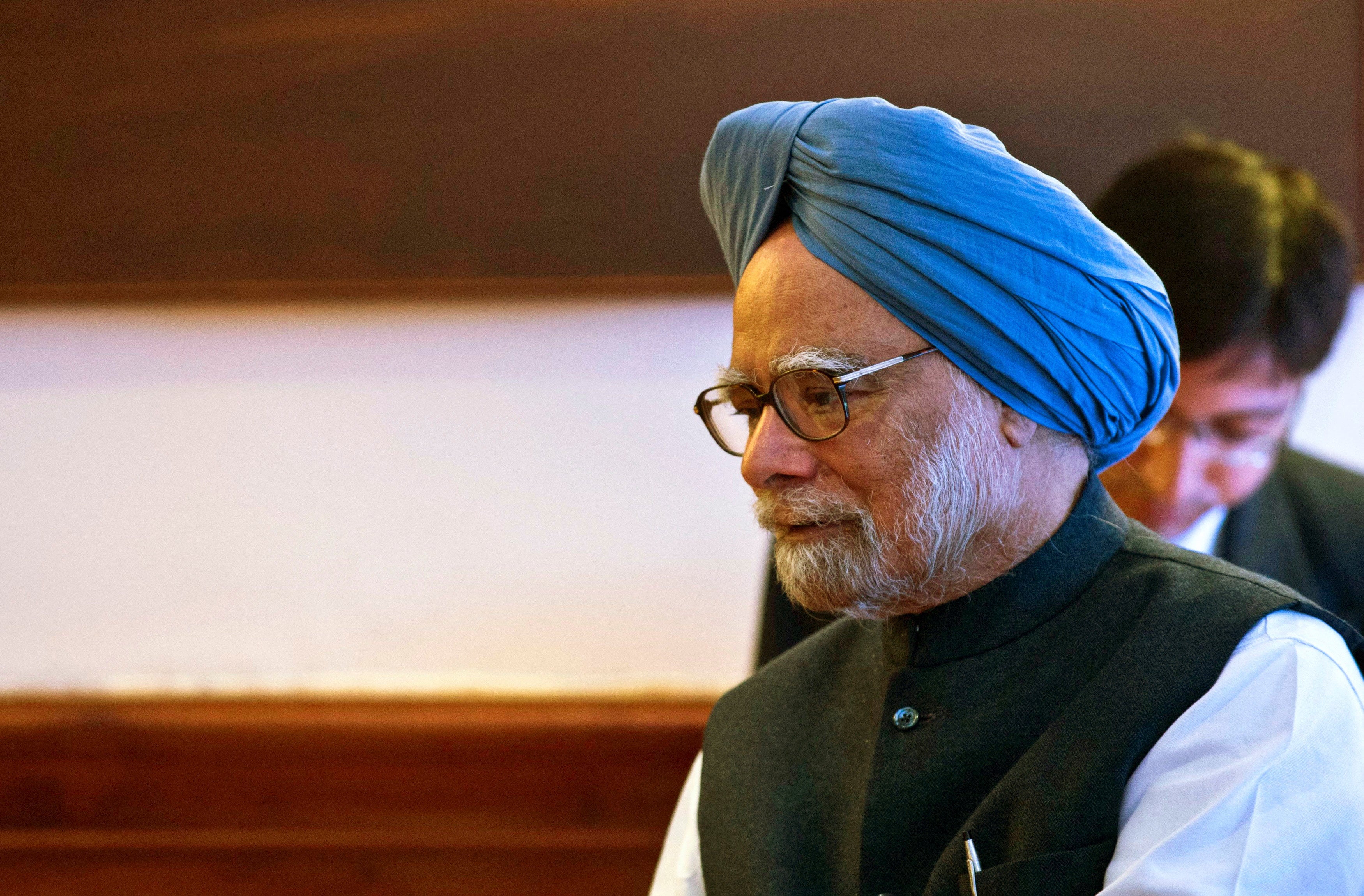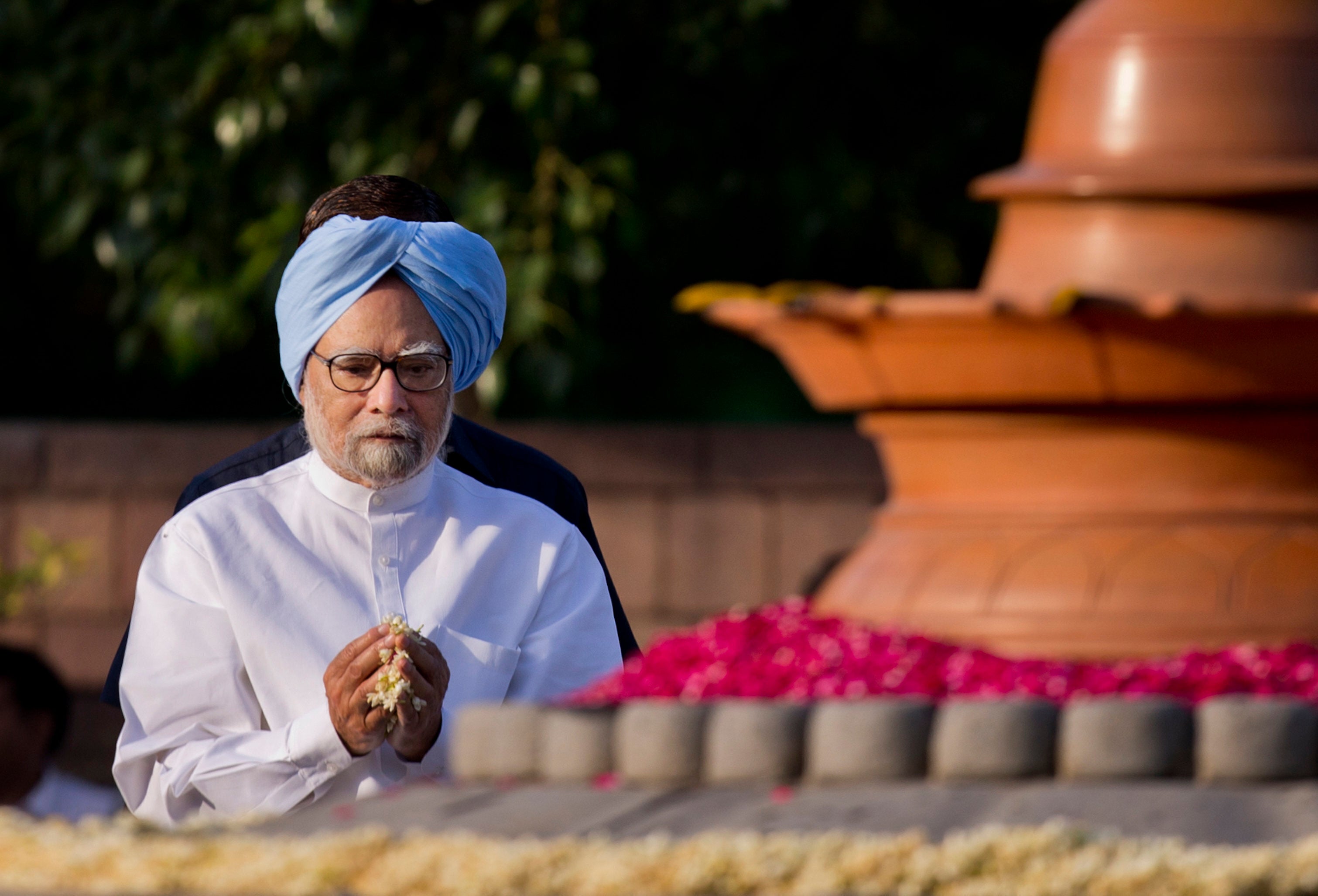Former Indian prime minister Manmohan Singh dies aged 92

Your support helps us to tell the story
From reproductive rights to climate change to Big Tech, The Independent is on the ground when the story is developing. Whether it’s investigating the financials of Elon Musk’s pro-Trump PAC or producing our latest documentary, ‘The A Word’, which shines a light on the American women fighting for reproductive rights, we know how important it is to parse out the facts from the messaging.
At such a critical moment in US history, we need reporters on the ground. Your donation allows us to keep sending journalists to speak to both sides of the story.
The Independent is trusted by Americans across the entire political spectrum. And unlike many other quality news outlets, we choose not to lock Americans out of our reporting and analysis with paywalls. We believe quality journalism should be available to everyone, paid for by those who can afford it.
Your support makes all the difference.
Manmohan Singh, the former Indian prime minister who governed the South Asian country for two terms and steered an economic boom in the country, has died, aged 92.
Singh was admitted to New Delhi’s All India Institute of Medical Sciences late Thursday after his health deteriorated due to “sudden loss of consciousness at home,” the hospital said in a statement.
He was “being treated for age-related medical conditions,” the statement added.
Singh is credited with steering India to unprecedented economic growth and lifting hundreds of millions out of dire poverty.
Prime minister Narendra Modi said: “India mourns the loss of one of its most distinguished leaders, Dr. Manmohan Singh Ji.”
A mild-mannered technocrat, Singh became one of India’s longest-serving prime ministers for 10 years and earned a reputation as a man of great personal integrity.
He was chosen to fill the role in 2004 by Sonia Gandhi, the widow of assassinated prime minister Rajiv Gandhi.
But his sterling image was tainted by allegations of corruption against his ministers.
Singh was elected to a second term as prime minister from 2009-2014 that was clouded by financial scandals and corruption charges over the organization of the 2010 Commonwealth Games.
This led to the Congress Party’s crushing defeat in the 2014 national election by the Hindu nationalist Bharatiya Janata Party under the leadership of Narendra Modi.Singh adopted a low profile after relinquishing the post of prime minister.
He was born into a poor family in a part of British-ruled India now in Pakistan, Singh studied by candlelight to win a place at Cambridge University before heading to Oxford, earning a doctorate with a thesis on the role of exports and free trade in India’s economy.
He became a respected economist, then India’s central bank governor and a government advisor but had no apparent plans for a political career when he was suddenly tapped to become finance minister in 1991.
During that tenure to 1996, Singh was the architect of reforms that saved India’s economy from a severe balance of payments crisis, promoted deregulation and other measures that opened an insular country to the world.

Famously quoting Victor Hugo in his maiden budget speech, he said: “No power on earth can stop an idea whose time has come,” before adding: “The emergence of India as a major economic power in the world happens to be one such idea.”
Singh‘s ascension to prime minister in 2004 was even more unexpected.
He was asked to take on the job by Sonia Gandhi, who led the centre-left Congress party to a surprise victory. Italian by birth, she feared her ancestry would be used by Hindu-nationalist opponents to attack the government if she were to lead the country.
Riding an unprecedented period of economic growth, Singh‘s government shared the spoils of the country’s new found wealth, introducing welfare schemes such as a jobs programme for the rural poor.

In 2008, his government also clinched a landmark deal that permitted peaceful trade in nuclear energy with the United States for the first time in three decades, paving the way for strong relations between New Delhi and Washington.
But his efforts to further open up the Indian economy were frequently frustrated by political wrangling within his own party and demands made by coalition partners.
And while he was widely respected by other world leaders, at home, Singh always had to fend off the perception that Sonia Gandhi was the real power in the government.
The widow of former prime minister Rajiv Gandhi, whose family has dominated Indian politics since independence from Britain in 1947, she remained Congress party leader and often made key decisions.
Singh was not personally seen as corrupt. But he came under attack for failing to crack down on members of his government as a series of scandals erupted in his second term, triggering mass protests.
The latter years of his premiership saw India’s growth story, which he had helped engineer, stall as global economic turbulence and slow government decision-making impacted investors confidence.
In 2012, his government was tipped into a minority after the Congress party’s biggest ally quit their coalition in protest at the entry of foreign supermarkets.
Two years later Congress was decisively swept aside by the Bharatiya Janata Party under Narendra Modi, a strongman who promised to end the economic standstill and bring inclusive growth to the hinterlands.
But at a press conference just months before he left office, Singh insisted he had done the best he could.
“I honestly believe that history will be kinder to me than the contemporary media or, for that matter, the opposition parties in parliament,” he said.
Singh is survived by his wife and three daughters.
Additional reporting by agencies



